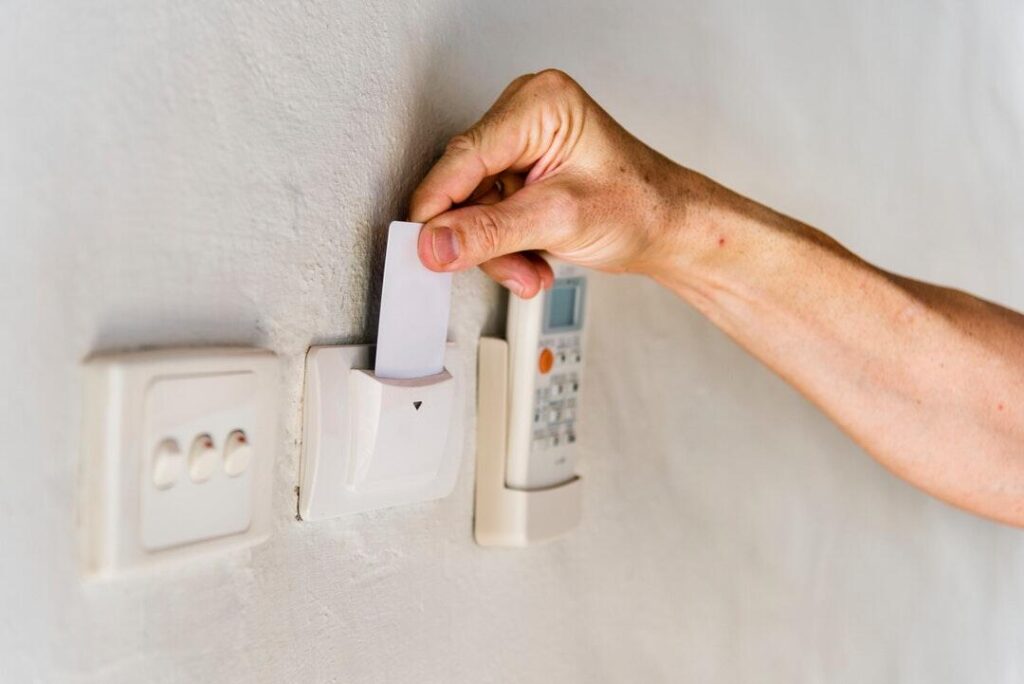In an age where the protection of your home or business is more crucial than ever, understanding security systems is vital. Whether you’re a first-time homeowner or a seasoned property manager, security systems can seem daunting.
With numerous options available, how do you know what’s best for you? The truth is, that choosing the right security system can save you from potential threats and provide peace of mind.
In this guide, we’ll dive deep into the types of security systems available, their features, installation tips, and how to maintain them effectively.
Types of Security Systems
Today’s market offers a wide range of security systems tailored to various needs. Here’s a comprehensive overview of the most common types:
Monitored Security Systems
Monitored security systems involve a professional service that monitors your security alarms 24/7. In the event of a security breach, these systems can quickly notify law enforcement or emergency services. Many homeowners appreciate the peace of mind that comes with professional monitoring.
Unmonitored Security Systems
Unmonitored systems aren’t connected to central monitoring stations. Instead, they rely on loud alarms to scare off intruders.
This option tends to be less expensive. But it places the onus on the homeowner to respond to alerts. If you’re looking for more control and plan on being near your property, this could be a suitable choice.
Smart Security Systems
Smart security systems integrate with home automation. This allows you to control features like cameras, locks, and alarms remotely. Most smart systems have mobile apps that send alerts directly to your phone.
DIY Security Systems
With advancements in technology, DIY security systems have surged in popularity. Homeowners can buy equipment and install them without professional help.
Some of these systems offer flexible options, like the self monitoring alarm system. It provides users with total control over security.
Key Features of Security Systems
When choosing a security system, several features can enhance your security:
Motion Sensors
Motion sensors detect movement in designated areas and can trigger alarms or alerts. They can be set up indoors and outdoors. This ensures comprehensive coverage.
Cameras
CCTV cameras provide real-time footage of your property. This allows you to monitor activity live from anywhere.
Advanced models come with night vision and motion detection capabilities. It makes them highly effective at determent and documentation.
Mobile Alerts
Receiving notifications on your smartphone when something suspicious happens is essential in today’s fast-paced life. Many security systems come equipped with apps that provide alerts. This allows you to respond quickly.
Integration with Smart Home Devices
Consider how your security system will work with other smart home devices. Integrating systems can automate tasks, like locking doors at night or turning on lights when motion is detected. This adds an extra layer of security.
How to Set Up a Security System
Setting up a security system isn’t always straightforward, but these steps will guide you:
Assess Your Needs
Begin by identifying your property’s specific vulnerabilities. Conduct a walk-through of your property to pinpoint areas that require monitoring.
Choose the Right System
Once you recognize what needs protection, select a system that meets these needs. For instance, if you travel often, a monitored system might be best. Whereas a smart system could work well for someone who prefers DIY solutions.
Proper Installation
For DIY systems, follow the manufacturer’s instructions closely. If you opt for a professional system, ensure the installer is reputable and has positive reviews. This will guarantee effective installation and coverage.
Regular Maintenance
Like any electronic device, regular maintenance is key. Test your system periodically, replace batteries, and ensure cameras are functioning correctly. This will ensure everything works when needed.
Cost Considerations for Security Systems
Understanding the costs associated with security systems is essential for budgeting. Below are the primary costs to consider:
- Equipment Costs
- Installation Fees
- Monitoring Fees
- Maintenance Costs
Choosing the Right Monitoring Option
The monitoring option you select should align with your lifestyle and security wants:
Professional Monitoring
With professional monitoring, you’re generally opting for 24/7 oversight from a dedicated service. This can be advantageous for families or individuals who travel often and need the extra assurance.
Self-Monitoring
For those who prefer more control, self monitoring safety alarm solutions can deliver just that. You can monitor alerts through your smartphone or set up alerts that keep you informed.
Hybrid Systems
Some systems offer the best of both worlds with professional backup plans for when you are unavailable. This can be a smart investment for serious security needs.
The Importance of Security System Signs
Don’t underestimate the power of visible security measures. Simple yard signs indicating a security system can deter intruders significantly. Displaying signs, stickers, or cameras can go a long way in discouraging potential threats.
Emergency Preparations with Your Security System
Your security system can play a crucial role during emergencies. Here are some steps to ensure your system is prepared:
Emergency Protocols
Establish clear protocols for what to do in case of a breach. Have a family discussion about how everyone should respond, whether it’s contacting the police or evacuating the premises.
Install a Panic Button
Many modern systems provide the option of panic buttons. This enables you to send immediate alerts to authorities at the touch of a button, perfect for high-stress situations.
Backup Power Supply
In case of power outages, a backup power source for your security system can ensure functionality. Consider a battery backup or generator to maintain security during unforeseen circumstances.
Future Trends in Security Systems
As technology evolves, so does the field of security systems. Here are some trends you can expect:
Artificial Intelligence
With the integration of AI, security systems are becoming smarter, offering features such as facial recognition and behavioral analysis.
Enhanced Video Quality
Expect to see even higher resolutions in security cameras, making it easier to identify suspects and gather evidence. 4K and beyond are becoming standard as technology improves.
Increased Connectivity
Security systems will continue to integrate with other smart devices. You’ll be able to control lighting, climate, and security all from a single interface, offering unprecedented convenience.
Final Thoughts on Security Systems
With the rising importance of securing our spaces, understanding security systems is essential. Whether you prefer professional assistance or opt for a self monitoring alarm system, the choices are numerous.
By knowing the various types, key features, and installing them effectively, you can safeguard your property. Equip yourself with knowledge. Lastly, take proactive steps to boost your security today!
For more safety and security tips, check out our blog posts.







